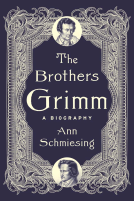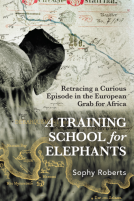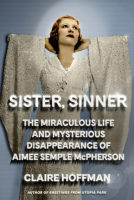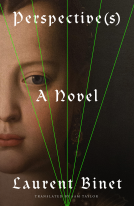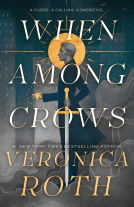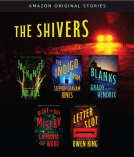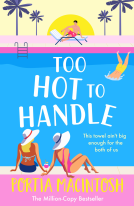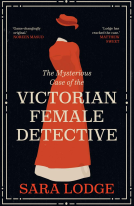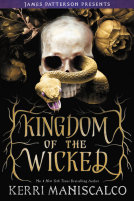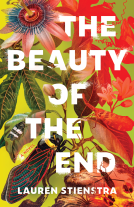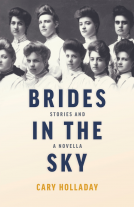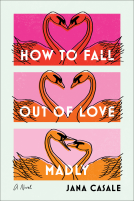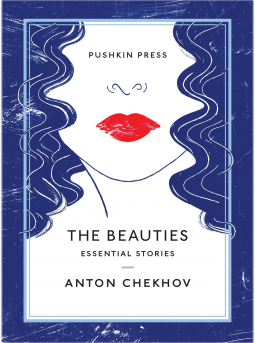
The Beauties
Essential Stories
by Anton Chekhov
This title was previously available on NetGalley and is now archived.
Send NetGalley books directly to your Kindle or Kindle app
1
To read on a Kindle or Kindle app, please add kindle@netgalley.com as an approved email address to receive files in your Amazon account. Click here for step-by-step instructions.
2
Also find your Kindle email address within your Amazon account, and enter it here.
Pub Date Feb 20 2018 | Archive Date Nov 19 2017
Pushkin Press | Pushkin Collection
Talking about this book? Use #TheBeauties #NetGalley. More hashtag tips!
Description
Without doubt one of the greatest observers of human nature in all its messy complexity, Chekhov’s short stories are exquisite masterpieces in miniature. His work ranged from the light-hearted comic tales of his early years to some of the most achingly profound stories ever composed, and this variety of tone and temper is collected in this essential new collection.
Chekhov wrote stories throughout his writing career, and this selection has been chosen from amongst his life’s work, including many of his greatest works, alongside unfamiliar discoveries, all newly translated. From the masterpiece of minimalism “The Beauties”, to the beloved classic “The Lady with the Little Dog”, and from “Rothschild's Fiddle” to bitterly funny “A Living Chronicle”, the stories collected here are the essential collection of Chekhov’s greatest tales.
CONTENTS:
The Beauties (1888)
The Man in a Box (1898)
A Day in the Country (1886)
A Blunder (1886)
About Love (1898)
Grief (1886)
The Bet (1889)
A Misfortune (1886)
Sergeant Prishibeyev (1885)
The Lady with the Little Dog (1899)
The Huntsman (1885)
The Privy Councillor (1886)
The Kiss (1887)
Advance Praise
"This beautifully produced selection of the stories from Pushkin Press (in a new translation by Nicolas Pasternak Slater) is an ideal way to discover Chekhov." — The Times (UK)
"Near-perfect fiction, newly translated." — Evening Standard
"The uncontestable father of the modern short story . . . his stories are some of the best that have ever been written.--- Guardian
"Chekhov's genius lies in the way he manages to convey with such apparent effortlessness a profound sense of the mystery of beauty, and of the sadness of those who observe and think . . . a masterpiece of minimalism" -- Phillip Pullman
"The greatest short story writer who has ever lived" -- Raymond Carver
"In Chekhov literature seems to break its wand like Prospero, renouncing the magic of artifice, ceremony and idealisation, and facing us, for the first time, with a reflection of ourselves in our unadorned ordinariness as well as our unfathomable strangeness." -- James Ladsun
Available Editions
| EDITION | Other Format |
| ISBN | 9781782273806 |
| PRICE | $18.00 (USD) |
| PAGES | 224 |
Featured Reviews
 Robin Y, Reviewer
Robin Y, Reviewer
Anton Chekhov, who has been hailed by many as the greatest short story writers of all time, is someone I read while in university, and who was filed in my brain under "all memories of my reading experience are wiped clean as though it never happened" along with E.M. Forster's A Passage to India, and others. This mysterious black hole of literary amnesia disturbs me. How could I forget the greatest short story writer of all time?!
Now that I've read this newly translated collection, I sort of get it how it might have happened. I read a few stories every day. And the next day, when I'd pick this up to continue reading, I'd have a curious experience: I couldn't remember anything about the stories I'd read previously. They had completely vaporised into nothingness.
It's not because the stories are forgettable, or irrelevant. They are just so minimalist, and deceptively simple. Deceptive because you could read them like I did on the first try, and just lazily slide past what Chekhov is saying, nothing sticking, nothing resonating. It was only on my second, more thoughtful and conscious reading of these stories that I connected to the material.
One great example of Chekhov's minimalism is found in The Beauties, a very short "story" - I use the term loosely, because it is really just two snapshots, two unrelated anecdotes in which a man sees beauty in his life. These women are imperfect, yet enigmatically alluring. There is no plot to speak of; it's more a meditation on the mystery of beauty.
A Blunder is also a very short scene in which parents are listening in on their daughter and her suitor, and just when they think he has made intentions to marry her, they burst in with their religious icons to seal the deal. In their desperation they have made an error, and the man flees.
A few in this collection are also short fables, which have an element of didactic intentions and require suspension of belief. The Bet is such a fable. It begins with an argument about which is worse, the death penalty or solitary confinement. One man bets 2 million rubles that his friend couldn't last 15 years in solitary confinement, and what happens (see what I mean about unrealistic?).
Then, there are a few longer ones that are more traditional as stories, but not a lot actually "happens". These stories are very internal and are more about the characters' state of minds and personal inner struggles. The Lady with the Little Dog is about a transformative, adulterous love. The Kiss, the most heartbreaking of the bunch for me, is about the temporary daring, soaring hopes an accidental kiss gives a lonely officer. When meaning is stripped from a normally intimate act, it can feel very empty indeed.
All the stories share the same existential threading, and a refusal to give an easy solution. They are meaningful, and memorable, if you take the time to look - and I'm glad that I did.
 Educator 144982
Educator 144982
We could all use a little more Chekhov in our lives, and these essential stories, in a fantastically lively and hard-working translation, do not disappoint. Not just recommended but required.
 Reviewer 247162
Reviewer 247162
An excellent translation of Chekhov, a must read for any Chekhov lover.
 Kelly K, Librarian
Kelly K, Librarian
Thank you to NetGalley and Pushkin Press for allowing me to read and review this fabulous collection of Chekhov stories. I've just recently discovered Chekhov (I know, for shame) and stumbled upon The Beauties at just the right time. I am enamored. I will absolutely recommend this to friends.
 Rose F, Reviewer
Rose F, Reviewer
I adored this book and it's now a favorite of mine. Chekhov's writing is smooth and the words glide of the page and form like pictures in your mind! Everyone should read this!
One could argue that a short story book is not as fulfilling as a full novel, however it is enough to read this book to understand that they don't even compete in the same category. Chekhov creates a full book with snippets and insights, masterfully crafted around life in rural Russia in the end of the XIX century.
There's not really a story, or characters, however the book is full of situations, moments, people, whose sole purpose is to make us think and reflect, and be taken in the direction the author wishes. It is no surprise that Chekhov also excelled as a play writer, as we can clearly visualize all the scenarios and characters portrayed.
My 2 favourite short stories were "The Man in the Box" and "The Blunder" as they were such an accurate portrait of a certain type of people that we can find them everywhere in the world, be it Russia 1800's, or Portugal in the 2000's
Highly recommended to everyone who enjoys a good classical book.
 Emma M, Reviewer
Emma M, Reviewer
Pushkin Press have published a new edition of thirteen of Chekhov’s short stories, translated by Nicolas Pasternak Slater, and it makes for a fascinating read. The Beauties, the first in the collection, is perhaps typical of his style – a boy, out visiting with his uncle, is much taken with a beautiful young woman. Years later, he sees another woman, quite different but just as beautiful. And that is pretty much it. But it is the observation, the sense of yearning for an ideal, which sets the story apart: ‘It was a moth-like beauty – the beauty that goes so well with a waltz, or darting across a garden, or with laughter and merriment, and which has no business with serious thoughts, sorrow or repose.’ But, as later stories suggest, such beauty only remains free of ‘serious thoughts’ or ‘sorrow’ if it remains purely something observed. The men who dally with beauty further along in the collection rarely find peace or resolution. In The Lady with the Little Dog, a married man, Gurov, pursues the beautiful Anna Sergeyvna cold-heartedly to begin, but slowly realises that he now cannot live without her. Most of the relationships here are inherently complex and, as another character says elsewhere, ‘we Russians adorn our love with these fateful questions.’
Marriage, based upon love or otherwise, is perhaps the most obvious thread in the collection, but there are two stories which stood out for me and which are more about isolation and solitary existences. In The Bet, a lawyer undertakes a challenge from a banker to live in solitary confinement for 15 years. If he can manage it, the banker will pay him handsomely. The effect of solitude on the lawyer is fascinating. It is perhaps the most ‘complete’ of all the narratives, and therefore perhaps the most conventional, but perfect for the form.
The final story, The Kiss, is perhaps the most moving. A young officer, painfully ‘shy, round-shouldered and colourless’, is kissed by an anonymous young woman in the dark. Chekhov examines the poignant effect this has on his young officer, who feels that ‘something good and warm had entered his life.’
Chekhov plays with the form of the short story, often denying his reader a neat ending, but showing love, and the adoration of beauty, in all its messy complexity. For this, and for his perceptive capturing of foolishness when in love, this is a very satisfying collection to those coming to Chekhov for the first time, and should hopefully prove a welcome addition to the reading piles of those who already know his work.
 Kimberly O, Educator
Kimberly O, Educator
The new translations by Nicolas Pasternak Slater are wonderful. Each story has rich, poetic language. I could happily imagine that I was reading the stories as Chekhov would have intended them. I am glad that I took my time with this collection - Chekhov makes for some dense reading that requires concentration. It had been decades since I had read any Chekhov, and The Beauties: Essential Stories was an excellent reintroduction.
 Joseph S, Reviewer
Joseph S, Reviewer
The Beauties: Essential Stories (Pushkin Collection) by Anton Chekhov is a collection of thirteen short stories. Chekhov lived in Russia from 1860 to 1904 and is renowned for his plays and short stories. This edition is translated by Nicolas Pasternak Slater. Slater has translated several works by Boris Pasternak, most recently The Family Correspondence, 1921–1960. For Oxford World’s Classics, he has translated Lermontov’s A Hero of Our Time and Tolstoy’s The Death of Ivan Ilyich and Other Stories.
There is something about Russian literature that captures the mind of the reader. Perhaps it is the connection with the peasants and common people. Chekhov's grandfather bought his freedom from serfdom along with his two sons. Anton Chekhov was the first in his family to be born outside of serfdom, but he was raised in the memory of it. He had a connection to the past. Russian literature also seems to have a fairytale quality to it. Princes and paupers, the clever and the silly, and a kingdom of snow all add a surreal feeling to the writing. The fairytale can also be warped by being trapped in an impossible life, prison, regret, drunkenness, and snow so deep it covers the top of telegraph poles. Chekov also manages to connect to these qualities too. He can add humor and seriousness any situation.
The Beauties manages to capture the best of Russian literature and in many stories, beauty is included. Beauty can be in the young girl in traditional dress seen at a train station or in the flaws of another woman that add a special quality to the beauty. Russia is also filled with natural beauty and that also is mentioned in some stories. Beauty can be found in friendships and in strangers. There is also a story of a man who in some way boxed everything he owned from the pocket knife in his pocket to his person in his many layers of clothing. His curtained bed even resembled a box. More overt silliness is caught in a couple trying to secure the marriage of their daughter by surprising them in a private moment and blessing them with an icon. There is sadness, too, in the story of the old woodcarver and his wife.
Chekhov was indeed a tremendous writer and for the English speaking world, Slater deserves much credit. His translation is not only very readable it seems to capture Chekhov's own voice. The true test of a translation is reading it and not realizing the text has been translated. Slater exceeds expectations here. Very well written and very well translated collection of stories.
 Laura N, Bookseller
Laura N, Bookseller
This was my first foray into Chekhov and I am glad I took the leap. This collection of short fiction is really well balanced, with humour, social critique, pathos and emotional depth spread beautifully over the thirteen tales. I particularly liked The Privy Councillor as a fairly biting look at the ineptitude of the bureaucratic system and The Kiss was a wonderfully light-hearted exploration of the perils of becoming infatuated with someone you have never seen. The story that impacted me the most, however, was The Bet. I have not stopped thinking about the lawyer, spending fifteen years in voluntary confinement in an effort to win a bet. The soul searching and longing he experiences leaps from every page and has well and truly wormed its way into my brain. All in all, I really enjoyed this collection and will definitely approach Chekhov without fear in future.
I received a free copy of this book from NetGalley in exchange for a fair and honest review.
 Juli R, Reviewer
Juli R, Reviewer
Over the years I have developed a bit of a soft spot for Russian Literature. It started with seeing the opera Onegin, then reading Pushkin's Onegin, before moving on to Bulgakov's The Master & Margarita, which immediately became one of my favourite books. I battled by way through War & Piece for Tolstoy's sake and have now finally found my way to Anton Chekhov. It took longer than it should have, but it was definitely worth the wait. Thanks to Pushkin Press and Netgalley for providing me with a copy of this book in exchange for an honest review.
I had never read Chekhov before but he is one of those giants you can't help but know off if you have any interest in literature or drama. I actually mainly knew Chekhov for the latter, his plays which I also hadn't read and his influence on the plays that came after. The principle of 'Chekhov's gun' was, in fact, the only real thing I knew about his writing style and it was that very thing that made me curious to read his fiction, rather than his plays, first. In a play, where you have less time and space, less means to bring meaning across, it is important to make sure every thing that happens or exists on stage matters. To paraphrase the man himself, if you put a loaded rifle on stage, make sure it goes off at some point in the play. But is the same true for fiction? How do you translate that principle to prose? I guess short stories suit themselves well to this principle since you only have limited space, but before going into The Beauties I was still worried that what I would find would be sparse and to the point. Shame on me for not trusting more in the author who has been dubbed the greatest short story writer of all times.
I have loved short stories for a long time, because I feel that in a way they show more personality than many books do. A short story only has so many pages, which means the author only has so many words at their disposal to entertain you. Maybe they take an absurd concept and elevate it to something magical. Maybe they bowl you over with how beautifully written they are. I didn't know what to expect from Chekhov, whether it would be the absurd or the beautiful. What amazed me about all the stories in The Beauties was how varied they were, yet how real each of them felt. For example, 'A Day in the Country' in which two homeless orphans and a drunk cobbler wander around the countryside, seeing and noticing. The language in this story is beautiful and the final sentence almost had me in tears. Meanwhile 'A Blunder' is genuinely hilarious and made me laugh out loud in a Shanghai Starbucks. 'The Man in a Box' had me feeling slightly odd, while 'Grief' and 'The Kiss' are very different but equally upsetting explorations of love, hope, and desperation. The Beauties holds so many different stories and yet they all come together to paint a portrait of 1800s Russia where beauty exists but also heartbreak, where love exists but hardly ever lasts, where people do the best with what they have.
Anton Chekhov's writing needs no praise from me, but I will give it anyway. In The Beauties the stories range from the most basic tales to the most absurd premises, and yet Chekhov makes each of them work. Take the eponymous 'The Beauties' which is utterly minimalist and has no actual plot that one would recognize. Nothing happens, twice, and yet the story leaves behind a sense of mystery, makes one think on the joy and sadness of beauty. Chekhov managed to get to the very essence of humanity with just a few words, highlighting exactly the moments in life that make us feel something without adorning them unnecessarily. But this doesn't mean Chekhov doesn't play with language. Below is perhaps my favourite quote from the collection, it's taken from 'The Bet':
He read like a man afloat on the sea, surrounded by the wreckage of his ship, trying to save his life by desperately clutching first to one fragment and then another.'
Throughout his stories, whether they require quiet observation, a sense of humour, a touch of tragedy or a breath of the uncanny, Chekhov seems to know exactly what is needed. Nicholas Pasternak Slater does a beautiful job at translating these short stories, retaining both their freshness and their gravitas, elevating the ridiculous as well as the tragic.
The Beauties is the perfect proof as to why Chekhov is called the greatest short story writer ever. His stories are so well-balanced, saying exactly what it is they want to say, surprising the reader but also enchanting them. I'd recommend this to anyone with an interest in either Russian Literature or short stories.
 Laura S, Reviewer
Laura S, Reviewer
Great stories from the master short story teller. I can never get enough of Chekhov. I'll definitely be recommending this to my book club and my bookl oving friends
 Moray L, Librarian
Moray L, Librarian
A beautiful cover for a fairly standard collection of Chekhov's works. But the translation by Nicholas Pasternak Slater is masterful and stories themselves are the work of a consummate short story writer, focusing on moments and glimpses and suffusing them with meaning and light. They are also full of humour, witnesses by a writer who could capture the idiosyncrasies of ordinary men and women with perfect verisimilitude and affection.
Readers who liked this book also liked:
Joe Hill, Stephen Graham Jones, Grady Hendrix, Catriona Ward, and Owen King
Essays & Collections, General Fiction (Adult), Mystery & Thrillers

